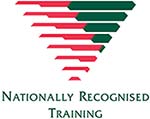This is a Free TAFE for Priority Course. Find out about your eligibility
Gain advanced skills and change lives in the rewarding field of youth work
According to the Australian Government, the future demand for youth workers is strong. Join an industry dedicated to improving the physical, social and emotional wellbeing of youth in Australia.
The Diploma of Youth Work will teach you to engage with young people and work alongside them to meet their goals. You'll learn to focus on objectives for the benefit of clients and the organisation and develop your own leadership style. And you'll gain the skills to drive the social, behavioural, health, welfare, developmental, and protection needs of young people.
Potential employment opportunities include youth support worker/team leader (out-of-home care, local government or not-for-profit). You could also find work as a youth liaison officer, youth welfare worker (schools), or youth support and programs worker in the community, government and other agencies.
This course is ideal if you have completed Certificate IV in Youth Work or work in the sector and want to further your career. Upon completion of this course, you will have the opportunity to take the pathway to a Bachelor of Community Mental Health, Alcohol and Other Drugs or a Bachelor of Psychology.
- Course code
- CHC50421
- Delivery location
- Dandenong
- International
- Not available for International students
- Length
- Full Time, 2 years.
- Start dates
- 10 February, 28 July
Please note: Students may be required to undertake an assessment of their literacy and numeracy as part of their application process.
 Chisholm is a Registered Training Organisation (RTO) and provides Nationally Recognised Training (NRT). This means you can be assured that our training will provide you with a qualification that is recognised and respected across Australia.
Chisholm is a Registered Training Organisation (RTO) and provides Nationally Recognised Training (NRT). This means you can be assured that our training will provide you with a qualification that is recognised and respected across Australia.
Chisholm courses are subject to minimum and maximum group numbers. Courses may be cancelled or postponed if minimum numbers are not achieved by the start date of the course. Courses may close prior to the start date if the maximum numbers are reached. In that situation, eligible applicants will be offered a place in the next available intake.

